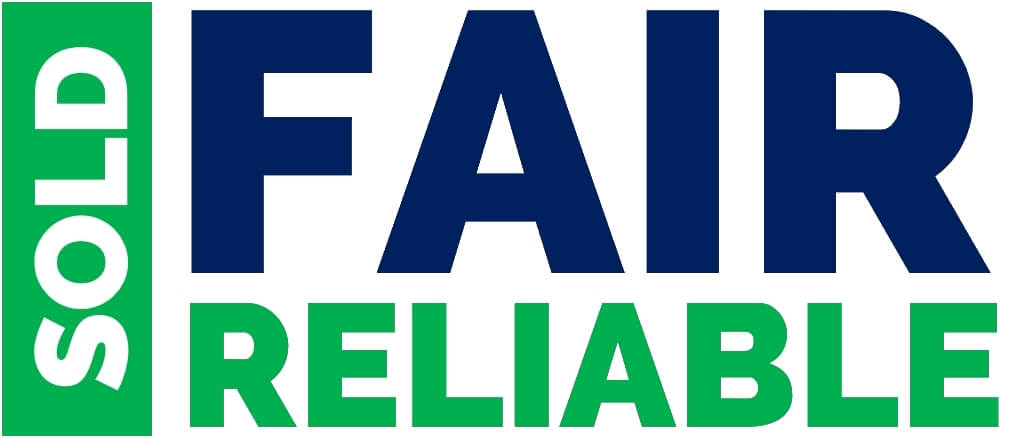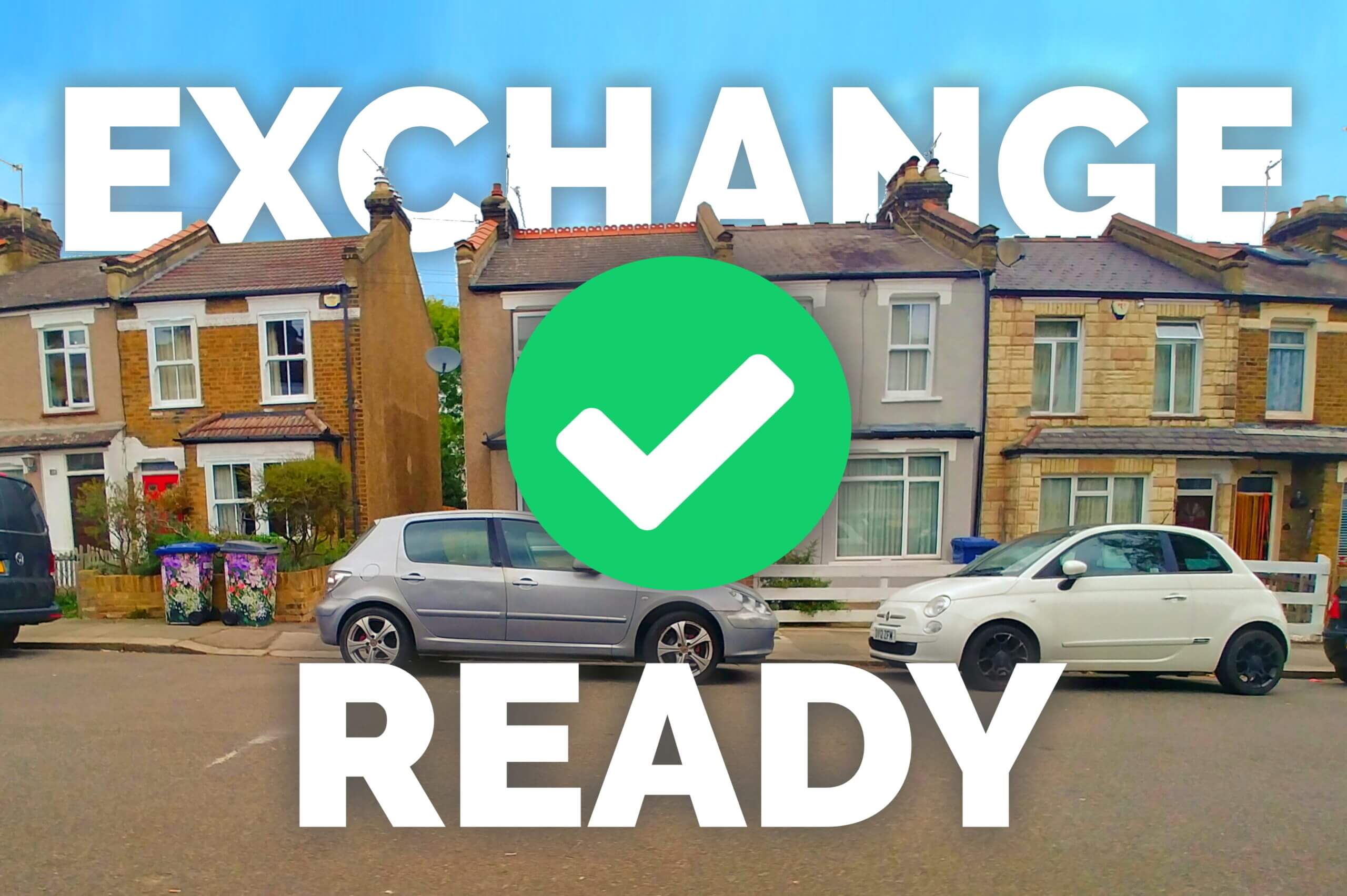Selling an Heir Hunter-Inherited Property
Discovering that you’ve inherited a house – especially through an heir hunter – can be both thrilling and daunting. If you’re considering selling, you’ll need to navigate legal, financial, and logistical factors. But is selling the right choice? Here’s what to consider before making a decision.
For your peace of mind we are a member of The Property Ombudsman.
Call 0800 862 0206 for your FREE sale price estimate
Selling an Inherited Property When Approached by an Heir Hunter
Heir Hunters (also known as Genealogy Investigators and Estate Tracer’s) specialise in tracing heirs to unclaimed estates, often working on commission or on behalf of legal firms.
Receiving news that you’ve inherited a house can be both exciting and overwhelming, especially if the information comes from an heir hunter. These professionals specialise in tracing heirs to unclaimed estates and often work on a commission basis, earning a percentage of the estate’s value upon successfully locating a rightful heir.
While the idea of unexpectedly inheriting property may seem like a windfall, it comes with a variety of legal and financial considerations. From verifying your claim to handling taxes and ensuring the property is in a saleable condition, navigating this process can be complex. If you’ve recently been contacted about a property inheritance and are considering selling, here’s a comprehensive guide to help you understand the necessary steps and make informed decisions.

Jump to section: Frequently Asked Questions
1. Verify the Inheritance
Before taking any steps to sell the property, you must confirm that you are indeed the rightful heir. The process of verification ensures that you have legal entitlement to the estate and protects you from potential fraud or disputes. Here’s how you can proceed:
- Checking Legal Documentation: The first step is to obtain a copy of the deceased’s will, if available. The will outlines who the beneficiaries are and the distribution of the estate. If no will exists, intestacy rules come into effect, determining inheritance based on legal hierarchy.
- Engaging a Solicitor: A legal professional can help verify the legitimacy of your claim and ensure you meet all legal requirements. They can also assist in liaising with the probate office and handling any legal challenges that may arise from other potential heirs.
- Confirming the Heir Hunter’s Legitimacy: If you have been contacted by an heir hunter, it is essential to ensure they are reputable. Research their credentials, read reviews, and seek independent legal advice before signing any agreement. Heir hunters often work on a commission basis, so understanding their fee structure is crucial.
- Requesting Official Probate Records: If probate has already been granted, you can request official records from the probate registry to confirm details of the estate and its beneficiaries.
- Communicating with Other Potential Heirs: In some cases, other family members or potential heirs may also be entitled to a share of the estate. Open communication and legal mediation can help prevent disputes and ensure a fair process.
Verifying an inheritance is an essential step in the process of managing and selling an inherited property. Without proper confirmation, legal issues can arise, potentially delaying the sale or resulting in financial complications.
Step 2: Handling Probate
In most cases, inherited properties must go through probate before they can be sold. Probate is the legal process of administering a deceased person’s estate. If the deceased did not leave a will, the estate is distributed according to intestacy laws.
If probate has already been granted, you may proceed with the sale. However, if probate is pending, you will need to apply for it before selling the property. The process involves submitting relevant documents, including the death certificate and details of the estate, to the Probate Registry. A solicitor can assist with this process to ensure compliance with legal requirements.
Probate can be a lengthy process, often taking several months or even longer if the estate is complex or if disputes arise among beneficiaries. Common causes of delay include missing documents, unresolved debts, or contestation of the will. To help expedite the process, ensure that all required paperwork is complete and accurate from the outset.
If there are multiple beneficiaries, their agreement on the sale and distribution of proceeds is essential. Conflicts among heirs can lead to legal disputes, further delaying the process. It is advisable to seek mediation or legal guidance to resolve any disagreements efficiently.
In cases where the deceased owned property in multiple jurisdictions, you may need to go through probate in each location, which can complicate and extend the process. Consulting an international probate specialist can be beneficial in such circumstances.
Additionally, if there are outstanding mortgages or debts attached to the property, these must be settled before completing the sale. Executors or administrators of the estate should work closely with financial institutions and legal professionals to ensure liabilities are properly addressed.
In some cases, if there is an urgent need to sell the property, it may be possible to apply for a Grant of Probate with limited authority, allowing the sale to proceed before the full probate process is completed. However, legal guidance is essential in such situations to avoid complications.
Read our guide to selling a probate property
Before proceeding with a sale, ensure you have obtained Grant of Probate and have the legal authority to sell the property.
Read more about selling a probate property by auction.
Step 3: Assessing the Property
Once ownership is confirmed, you should assess the condition and value of the property.
- Arrange for a property valuation from multiple estate agents to determine its market value.
- Consider getting a structural survey if the house has been vacant or neglected for some time.
- If necessary, carry out essential repairs to make the property more attractive to buyers.
In addition to valuation and structural surveys, it is also important to inspect for any potential legal or environmental issues that could affect the sale. Check if there are any outstanding planning permissions, disputes over boundaries, or local authority restrictions on the property.
If the house has been unoccupied for an extended period, you may need to check for common issues such as damp, pest infestations, or outdated electrical and plumbing systems. Upgrading these aspects may increase the property’s appeal and overall marketability.
Consider consulting a professional home staging expert to enhance the interior presentation of the property. Well-presented homes tend to attract higher offers and sell faster.
Finally, researching local property market trends can help you determine the best timing for selling. Understanding the demand in the area, average selling prices, and buyer preferences will allow you to make informed decisions that maximise the value of the property. Once ownership is confirmed, you should assess the condition and value of the property.
Short on time?
If you don’t have the time to read this article in full, we can come back to you with a free auction appraisal, to help you decide if selling by auction is a good option for you. Request a free estimate and we’ll come back to you.
Step 4: Understanding Tax Implications
Inheriting and selling a house can have financial consequences, including various tax obligations and associated costs that must be carefully considered before proceeding with the sale.
- Inheritance Tax (IHT): In the UK, inheritance tax may be due if the estate exceeds the current threshold set by HMRC. The standard rate is 40% on any amount above the threshold. Some exemptions and reliefs, such as the residence nil-rate band, may apply depending on your circumstances. Consulting a tax adviser can help determine if you are liable for inheritance tax and whether any relief options are available.
- Capital Gains Tax (CGT): If the property has increased in value from the time you inherited it to when you sell it, you may be required to pay capital gains tax on the profit. However, if the property was your primary residence, you may qualify for Private Residence Relief, which could reduce or eliminate your CGT liability. Keeping records of valuations at the time of inheritance and any improvements made to the property can help accurately calculate CGT obligations.
- Income Tax Considerations: If you decide to rent out the inherited property before selling it, any rental income you earn will be subject to income tax. Understanding tax bands and allowable expenses related to rental income can help you manage your tax liabilities more effectively.
- Other Costs: In addition to tax obligations, you should also consider legal fees, estate agent fees, conveyancing costs, and any potential liabilities attached to the property, such as outstanding utility bills or service charges. If the property is leasehold, check for any outstanding ground rent or service charge payments.
Understanding these tax implications and financial responsibilities in advance can help you plan effectively and avoid unexpected costs during the sale process. Seeking professional guidance from solicitors and tax experts can provide clarity and ensure compliance with all legal and tax obligations.

Step 5: Selling the Property
Once you are legally able to sell the property, you can choose from several selling options, each with its advantages and considerations:
- Estate Agents: Traditional high-street or online estate agents can help market the property to potential buyers. This method provides the benefit of professional marketing, negotiation expertise, and access to a larger pool of prospective buyers. However, estate agent fees and the time required to complete the sale can vary significantly.
- Auction: If a quick sale is required, selling at auction may be an option. Auctions can generate competitive bidding, which may lead to a higher sale price. However, there is also the risk that the final selling price might be lower than expected. It is essential to set a realistic reserve price to mitigate this risk.
- Direct Sale to a Cash Buyer: Some property companies and investors specialise in buying inherited houses quickly, avoiding lengthy sale processes. This can be an excellent option for those who need an immediate sale or wish to avoid the hassle of repairs and renovations. However, the selling price is often lower than the market value due to the speed and convenience of the transaction.
Additionally, you may want to consider whether to sell the property “as-is” or make improvements before listing it. Minor upgrades and staging can increase the property’s value and appeal to a broader range of buyers. Understanding current market conditions, consulting with real estate professionals, and comparing offers can help you choose the most suitable selling approach for your circumstances.
Step 6: Completing the Sale
Once an offer is accepted, the legal process of transferring ownership begins. A solicitor will handle contracts, ensuring all legal requirements are met, including conducting property searches, verifying the title, and addressing any potential legal restrictions or encumbrances on the property. The buyer’s solicitor will typically carry out due diligence, which may involve property surveys and financial arrangements.
During this stage, negotiations may occur regarding contract terms, completion dates, and any remaining conditions that need to be met before the sale is finalised. Once all parties are satisfied, contracts will be exchanged, legally committing both buyer and seller to the transaction.
The final step is the completion, where the balance of the purchase price is transferred, and the property ownership is officially handed over to the buyer. Your solicitor will ensure that any outstanding debts, such as mortgage balances or inheritance tax obligations, are settled before distributing the proceeds to you. After the transaction is finalised, you will receive the net proceeds from the sale, minus any applicable taxes, solicitor fees, and other associated costs.
Completing the Sale via Auction
If the property is sold at auction, the process is slightly different. Upon winning the bid, the buyer is legally required to pay a deposit – typically 10% of the final sale price – on the day of the auction. The sale is legally binding at this point, meaning neither party can back out without incurring significant penalties.
The buyer usually has a set timeframe, often 28 days, to complete the purchase. During this period, their solicitor will carry out due diligence, and any necessary property searches and financial arrangements must be finalised. Unlike private sales, auctions tend to have a much quicker completion process.
If you are selling through auction, it is essential to ensure that all necessary legal documentation, including the title deed, property information, and any required disclosures, is prepared in advance and made available to potential bidders before the auction. A solicitor or auction house specialist can help ensure compliance with these requirements.
Once the sale is completed, the remaining balance of the purchase price is transferred, and ownership is officially handed over to the buyer. You will then receive the proceeds from the sale, minus auction fees, solicitor costs, and any outstanding financial obligations tied to the property.
What documents do I need to prove I’m the rightful heir?
You’ll need the deceased’s death certificate, your identification documents, and legal documentation proving your relationship to the deceased. You may also need letters of administration or probate documents confirming your right to inherit.
How do I verify the heir hunter’s legitimacy?
Legitimate heir hunters should be registered with professional bodies and willing to provide references. Research their company history, ask for credentials, and consider having their claims independently verified by a lawyer before proceeding.
What taxes will I need to pay on an inherited property sale?
You may be liable for inheritance tax, capital gains tax on any increase in property value since inheritance, and possibly income tax depending on your jurisdiction. It’s advisable to consult with a tax professional for specific guidance.
Can I sell the property immediately after inheritance?
Generally, you must wait until probate is complete and you have legal title to the property. This process typically takes several months but can be longer if there are complications or disputes.
Should I renovate the property before selling?
This depends on the property’s condition and local market. Some inherited properties may need basic repairs and cleaning, while others might benefit from more substantial renovations. A local real estate agent can advise on the most cost-effective improvements.
What if there are other potential heirs?
All potential heirs must be notified and their claims resolved before the property can be sold. This might require legal mediation or court proceedings if there are disputes about inheritance rights.
How do I handle existing tenants in the inherited property?
Existing tenancy agreements remain valid after inheritance. You must honour these agreements or negotiate with tenants according to local tenancy laws if you wish to sell the property vacant.
What if there’s still a mortgage on the property?
The mortgage must be addressed before or during the sale. Options include paying it off from other inheritance funds, continuing payments until sale, or selling the property subject to the existing mortgage.
How do I determine the property’s true market value?
Get multiple professional appraisals from local real estate agents or certified appraisers. Consider the property’s condition, location, and recent comparable sales in the area. Be wary of quick-sale companies offering below-market prices.
What should I do with the deceased’s personal belongings in the property?
You’ll need to inventory all items and determine their value. Family members might want to keep certain items. Consider estate sales for valuable items and donate or dispose of remaining belongings before selling the property.
Free auction estimate
Request a free valuation and reserve price estimate for your property today. In some cases we may need a few more details about your property before providing a free and no-obligation auction sale estimate.
Contact us for guidance on selling your home by auction. Request a free pre-auction appraisal – we’ll be happy to help.
Guide to selling a house by auction
Explains the stages involved in an auction sale. With information about auction sale costs, timescales and the process for selling at auction.
Carry out improvements before selling?
When selling a property in need of improvement, should I spend money on refurbishment works? Or leave the property as is, and let the new owner take care of improvements?
Poor condition property: Auction VS Estate Agent
The private treaty method of sale isn’t suited to some types of property – it’s inefficient and potentially open to abuse.
Selling a short lease flat
The rules of an auction sale mean that buyers must compete to purchase a property. And the highest bidders offer is legally binding – there is no opportunity for them to reduce their offer.











